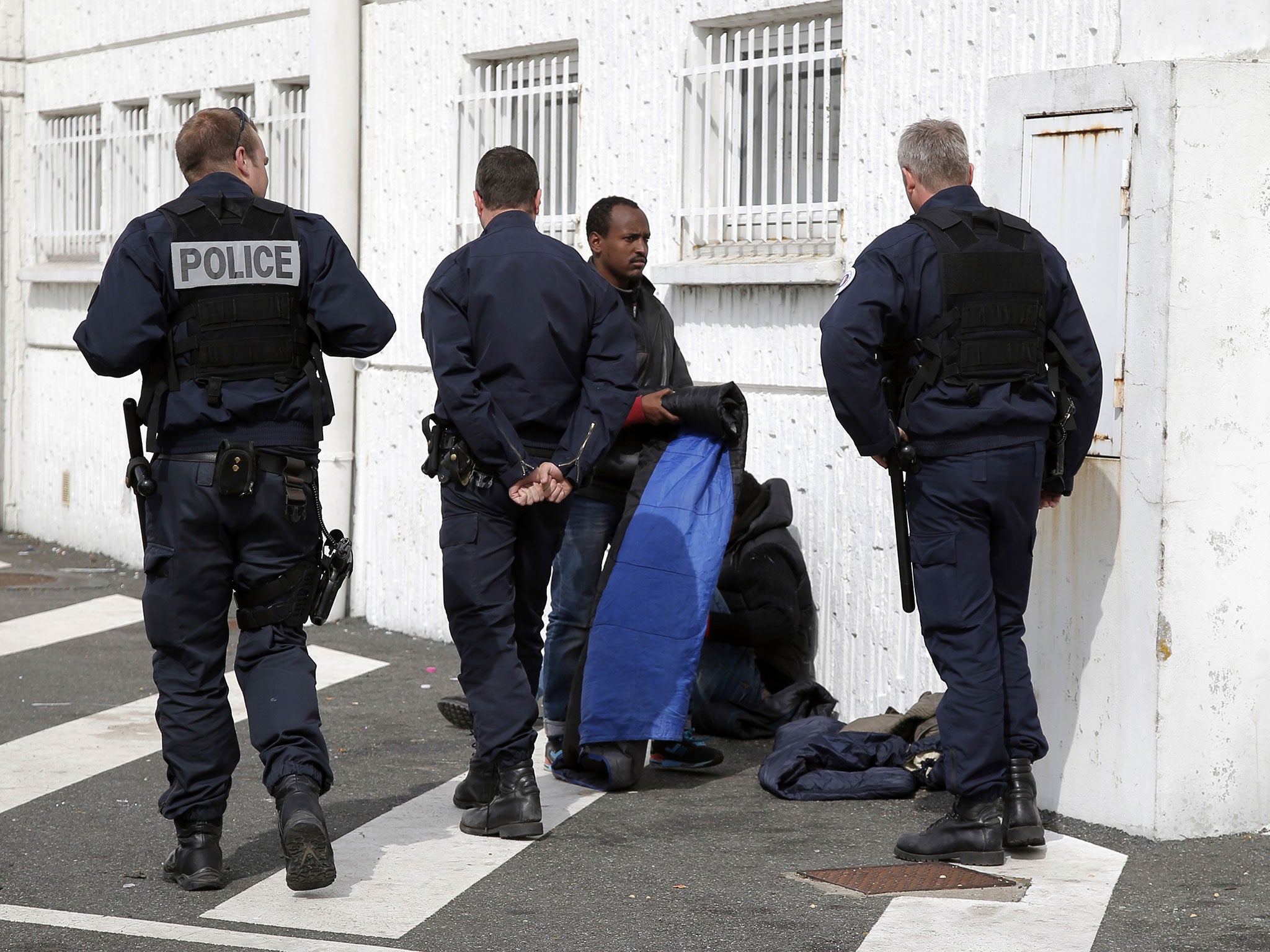France backs quota system for resettling migrants in EU countries
There is no question of the EU imposing migrant quotas on Britain, thanks to a so-called opt-in clause for asylum, which allows the UK the choice on whether to adopt the legislation

Your support helps us to tell the story
From reproductive rights to climate change to Big Tech, The Independent is on the ground when the story is developing. Whether it's investigating the financials of Elon Musk's pro-Trump PAC or producing our latest documentary, 'The A Word', which shines a light on the American women fighting for reproductive rights, we know how important it is to parse out the facts from the messaging.
At such a critical moment in US history, we need reporters on the ground. Your donation allows us to keep sending journalists to speak to both sides of the story.
The Independent is trusted by Americans across the entire political spectrum. And unlike many other quality news outlets, we choose not to lock Americans out of our reporting and analysis with paywalls. We believe quality journalism should be available to everyone, paid for by those who can afford it.
Your support makes all the difference.Plans for a quota system to deal with the recent surge of migrants crossing the Mediterranean to reach Europe gained traction, as France said it backed the proposal.
The plans for binding quotas among the 28 EU member states, due to be formally unveiled by the European Commission in Brussels on Wednesday, come in response to harrowing scenes of migrants dying at sea while trying to reach Europe. The quotas would be based on criteria including GDP, population and unemployment rates, as well as the number of refugees that each country is taking.
French Interior Minister Bernard Cazeneuve said it was “reasonable that there should be a redistribution of the numbers in the European Union”. France has previously insisted on its national prerogative for handling migration. Austrian Chancellor Werner Faymann has said quotas are “a question of fairness”, adding that asylum is “not an act of mercy but a human right”.
Britain, fighting another lonely battle, has said it will resist the strategy, with the Home Office saying the UK “has a proud history of offering asylum to those who need it most but we do not believe that a mandatory system of resettlement is the answer”.
Despite the rhetoric, there is no question of the EU imposing migrant quotas on Britain, thanks to a so-called opt-in clause for asylum, which allows the UK the choice on whether to adopt the legislation.
The quota scheme also has the support of Germany, which received 200,000 asylum applications over the past year, as well as Italy and Malta, where most migrants land.
In Italy, which has received more than 60,000 asylum applications over the past year, compared with around 30,000 in the UK, political tensions surrounding the migrant influx are rising.
The large northern regions of Piedmonte and Lombardy have said their refugee centres are full and are threatening to defy Interior Ministry orders to take more arrivals.
In the little northern region of Friuli-Venezia Giulia, which has just 1.2 million inhabitants, there are already 2,000 asylum-seekers. Local officials say the area simply cannot house new quotas that central government intends to transfer north from Sicily.
Dubbed the “Lampedusa of the North” by the anti-immigration Northern League, Friuli-Venezia Giulia has borne the brunt of refugees, many from Afghanistan, arriving via the “Balkans route”, passing through Turkey, Macedonia and Hungary.
The EU’s foreign policy chief, Federica Mogherini, attempted to secure United Nations backing for military action against people-smuggling networks operating from Libyan waters. She outlined the scheme at the UN Security Council, amid delicate negotiations to secure the support of Russia and China, two veto-wielding countries. “We need to count on your support to save lives,” Ms Mogherini pleaded.
Amnesty International said that many migrants were being driven to make the journey by “horrific abuse” in Libya. The UN says that around 60,000 people have already tried to cross the Mediterranean this year. More than 1,800 people have perished en route, a 20-fold increase on the same period in 2014.
Subscribe to Independent Premium to bookmark this article
Want to bookmark your favourite articles and stories to read or reference later? Start your Independent Premium subscription today.
Join our commenting forum
Join thought-provoking conversations, follow other Independent readers and see their replies
Comments